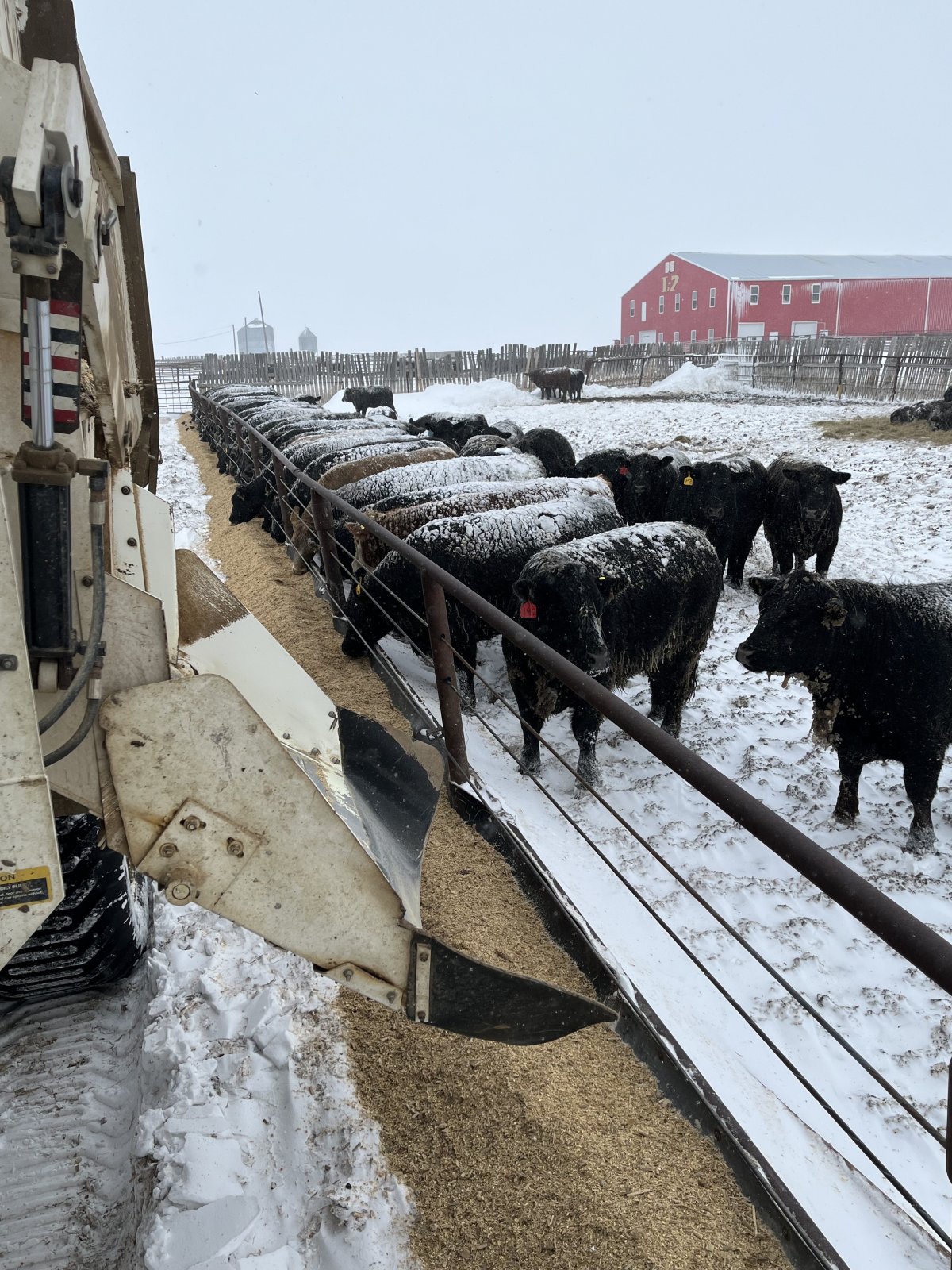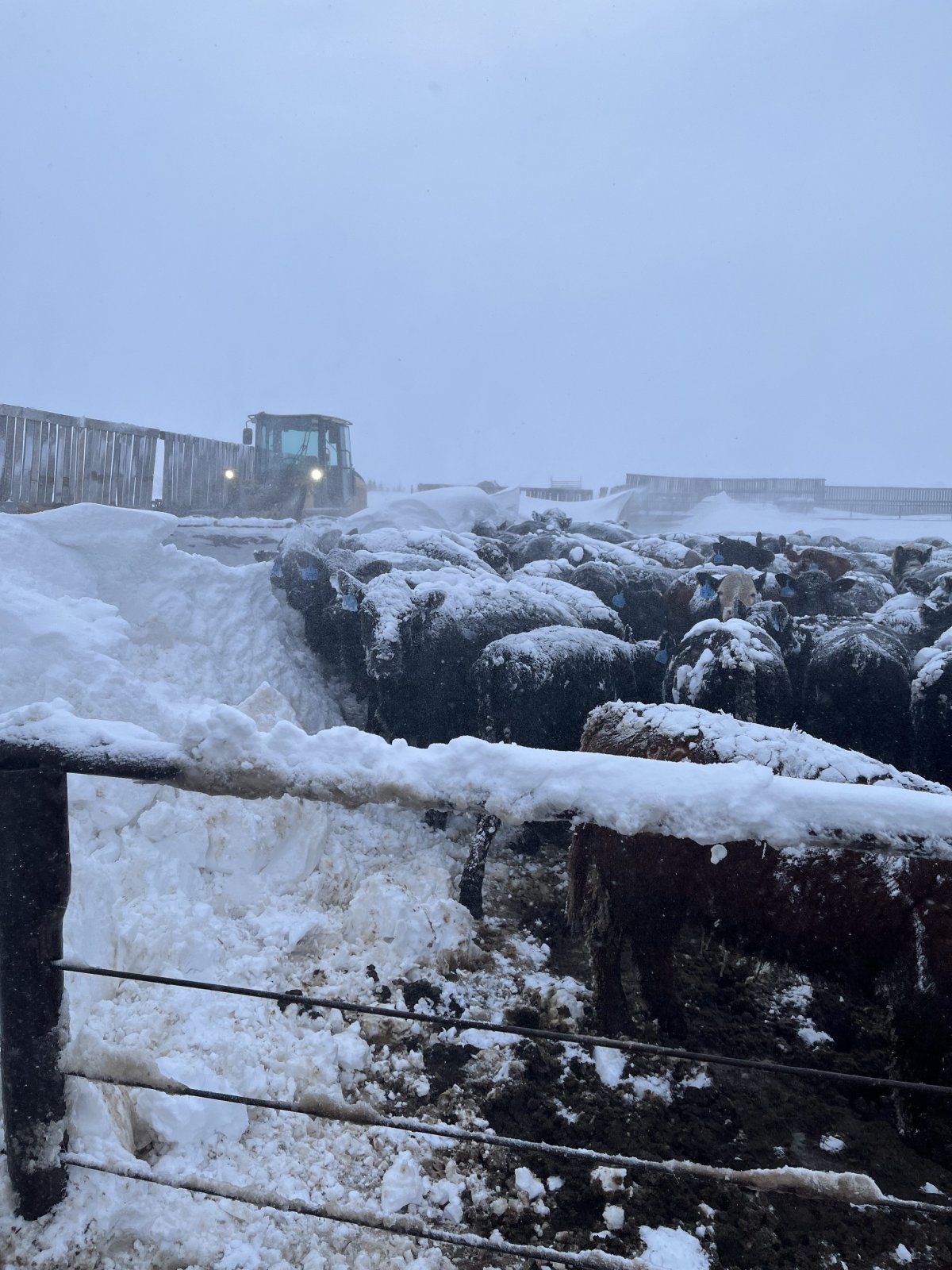Ranchers in Estevan, Sask. are dealing with the aftermath of last week’s blizzard, including the deaths of some calves, which has been making the season an overall stressful one.

Cattle rancher Chad Ross says he heard from several producers in the area who had calves die during the storm, including one rancher who lost up to nine calves.
“Ranchers are struggling right now,” Ross said. “It’s been a very long, tough winter and then to add these April snow storms onto it really has made it challenging just mentally for our ranchers.”
He says usually when a storm is on its way, ranchers take the time to prepare for it a few days ahead. Ranchers have to bring their cattle into either corrals or behind bales or trees to protect them from the weather. During the storm, Ross says it’s just a matter of being with them as much as possible.
“They just got to be with them and make sure those calves get into a warm place before they get hypothermic and get them warmed up.”
The wind isn’t the only danger to calves, but also trampling concerns when animals get close together to fight through the storm, Ross said.
And even after a storm, there are still many challenges for ranchers, including ensuring there are no foreign scents on calves before returning them to their mothers. It’s a lot of work, but Ross says it’s necessary.
“We do whatever we can for our livestock and that’s the business we’re in and we love what we do.”

Ross recalls a major storm that the community suffered back in 2011, which saw an even greater amount of calves die, since there was even less time to prepare for it. While he says this year’s storm wasn’t as bad as that, it was still quite severe.
Ross says last week’s storm, fortunately, gave a few days to prepare. He was able to round up his cattle into a feedlot, get his cows into shelter behind trees and feed all of them. During the storm, however, the snow had built up so high over the fences that some cattle were in the snow. He says he had to dig those cattle out of the snow before anything could happen to them.
Ross himself says he lost calves during another storm nearly 20 years ago. While he didn’t lose any calves this year, due to the decision he made all that time ago to begin calving later in the year, he knows exactly how ranchers who lost calves this year feel.

Get breaking National news
“It’s devastating to lose calves, financially, but you just don’t like it to happen. So you work as hard as you can to save as many as you can … When it storms … we get out and we get tough and deal with it.”
Saskatchewan Cattlemen’s Association chair Arnold Balicki also says preparation is important when it comes to storms. While it is a difficult thing to go through, Balicki says it’s something ranchers have learned to overcome.
“You can do all those things … but a storm is a challenge of its own,” Balicki said. “The only thing we can do is accept that when it gets here and deal with it. Ranchers have been faced with storms and we know how to handle it.”
Ross stressed ranchers need to take care of their mental health. He says it’s been a very stressful time for ranchers, with the recent drought affecting ranchers across the province — among a number of other things — and this storm has only made things harder.

“Dealing with a long, tough winter and then the high cost of feed, it’s just a challenge to top it all off,” Ross said. “Our margins have been pretty slim the last few years and so cash is tight. To go out and buy a high-priced feedstock to keep your cattle alive adds a lot of anxiety. We are very resilient and we do work hard, but it’s tough to take some days.”
Balicki echoes the overall mental health impacts on ranchers as well, advising ranchers going through losses and stress to look for some help from other ranchers in their community or to call the Farm Stress Line.
The Farm Stress Line run by the provincial government is available 24 hours per day, seven days per week, toll free: 1-800-667-4442.
While ranchers had a lot of work to do through the storm, Balicki says help was graciously offered from others in the industry.
“This agriculture industry is very, very competitive, but we’re also a very caring, compassionate industry,” Balicki said. “There were grain producers who voluntarily offered to help and did help livestock producers during that storm.”
While Ross says he’s fortunate that this storm has increased the moisture after the drought and things are looking up, he does say the storm may have some lasting impacts.
“We will lose producers through this, just because of the winter we’ve had as this combined with the economic situation,” Ross said. “Our prices have not gone up, but yet our cost of doing business rose exponentially.”













Comments